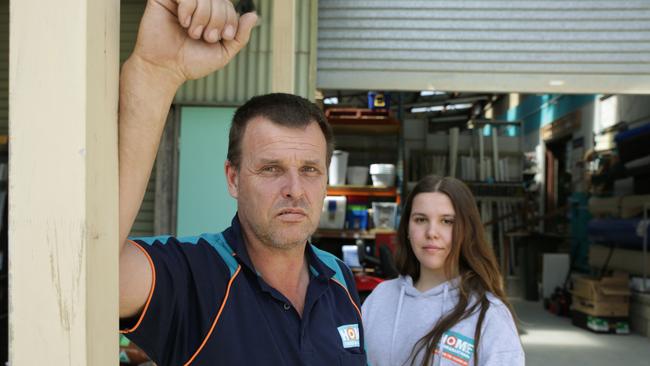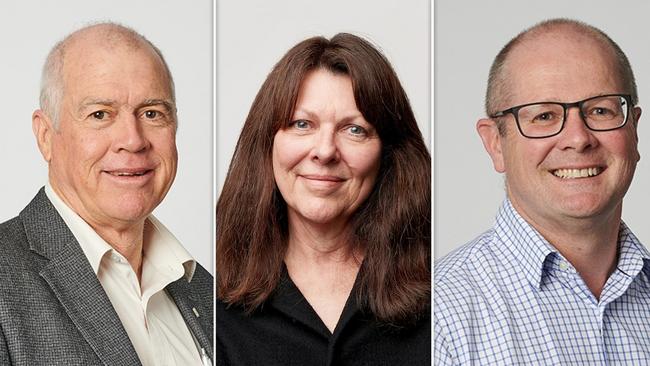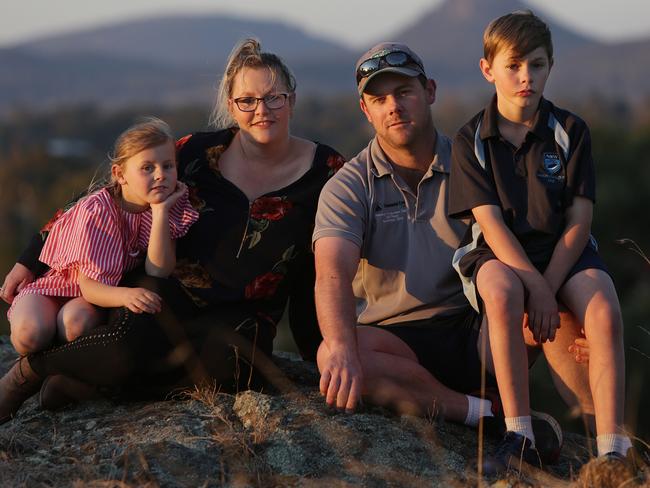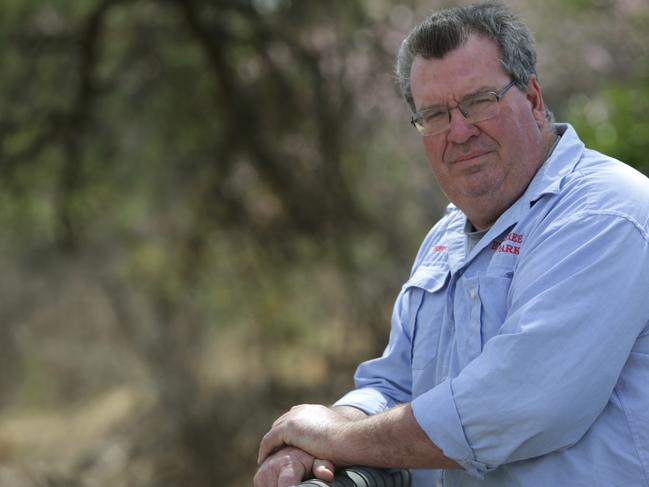Planning supremos earn double in a day what locals desperate for coal mine earn in a week
Independent Planning Commissioners who rejected the Bylong Valley coal mine earn more than double in one day than the local hardware store owner takes home for a week — but they blame sloppy laws for forcing their decision.
NSW
Don't miss out on the headlines from NSW. Followed categories will be added to My News.
The commissioners who rejected the Bylong Valley coal mine earn more than double in one day than the local town’s hardware store owner takes home in a week.
Ben Jenik owns the Rylstone Home Timber and Hardware store close to where the $300 million coal mine would have been built in the state’s central west.
“We are the people that live out here near the mine and they didn’t listen to our thoughts on it,” he said.

The Independent Planning Commission cited “long-lasting environmental” impacts from burning the coal in South Korea for rejecting the mine that would have created 450 jobs for the town over its 30-year life span.
Commissioners Gordon Kirby, Wendy Lewin and Steve O’Connor each earn $2000 a day for sitting on the IPC. By contrast Mr Jenik takes home $900 a week.
“I don’t know how much longer this can go on for,” Mr Jenik said.
MORE NEWS
Aussies to be banned from bonking in Bali
Farmer uses chopper to help catch fugitives
Climate change anxiety paralysing kids as young as 10
Deputy Premier and Resources Minister John Barilaro has blasted the commission for basing its decision on “scope three” emissions, which take into account pollution from where the coal will be burnt.
“There is also a big difference between the Department of Planning’s consideration of scope three emissions, compared with the IPC’s more hard-line stance on the issue,” he said.
“This needs to be addressed to give the IPC a much clearer direction.”

But in a comment piece for The Daily Telegraph today, the chair of the commission, Mary O’Kane, has made it clear that commissioners can only work on laws passed by the NSW government.
“The commissioners are not policy makers — they are more like referees. They are certainly not activists,” she said.
Privately the commissioners are known to be frustrated and angry at the sloppy laws that offer them no help in getting projects over the line.
Ms O’Kane wrote that even though projects have an impact on jobs and the economy “the commissioners must work with the legislation and the policies that are relevant”.

That was not good enough for Planning Minister Rob Stokes, who said: “Major resource projects in NSW aren’t and shouldn’t be refused on the basis of where they sell their coal.”
But he backed away from pulling the commission into line.
“Political interference in mining applications landed former Labor ministers in jail, so we will not interfere in what is rightly now an independent process,” he said.
The decision on the coal mine throws into doubt the future of 25 mining projects stuck in the planning system which could fuel $2 billion a year in royalty payments to the NSW government.
Mr Stokes’ comment that the decision had given locals “finality on a process that has been going on far too long” brought a furious response.
“What a load of crap,” Mid-West Regional Council mayor Des Kennedy said.
“People are on their knees out there waiting for this to happen.”
He had more to say on the almost eight-year planning process for the mine: “Well he is right — it has gone on too long. And we have finality. Finality for the people of Rylstone and Kandos who were relying on that mine for jobs and who will now have to be supported on welfare by the people of NSW.”
NSW Minerals Council CEO Stephen Galilee said the NSW planning system had become a direct threat to investment in NSW and to the jobs of thousands of people: “We have been warning the minister of the potential for critical job creating projects to fall over and now we’re seeing this happen.”

His concerns were echoed by Labor planning spokesman Adam Searle, who said the NSW planning system had plunged into crisis, and there was a lack of public and business confidence in it.
Rylstone local and a coal miner of 15 years Mathew Hayward said he wanted to see the mine go ahead.
“I like working in the coal industry,” he said.
“The camaraderie, the lifestyle and how much time I get to spend with (children) Tynan and Alexis is great.”
TOURISM PLAN RUBBISHED
Tourist operators have laughed at suggestions the scrubby land that would have housed the $300 million Bylong Valley coal mine would ever attract visitors.

One of the reasons given by the Independent Planning Commission in rejecting the project was that it would be better used for tourism.
Rylstone and Bylong have a small tourism industry, but locals say the site of the proposed mine offers nothing to attract tourists.
“It is rubbish land where they want to build it,” tourism operator Bruce Kerney said.
“There is a lot of good land down the valley but not where the mine would go.”
The Kandos Hotel is the closest accommodation to the proposed mine site, and owner Ray Odgers has spent $1 million upgrading it for mine workers.
He said the reason for rejection did not stack up.
“Tourism won't work here, it is not a tourist town. Tourists will either go to Mudgee or somewhere else,” he said.
